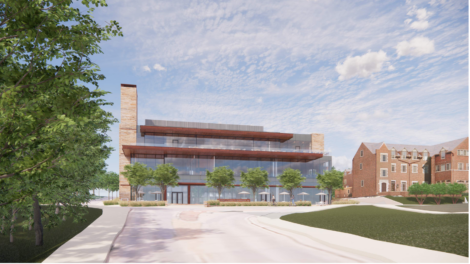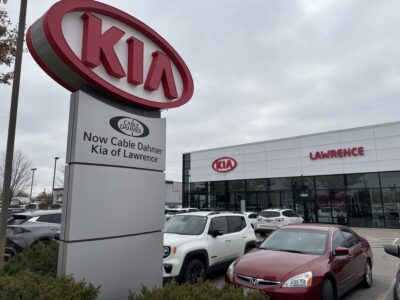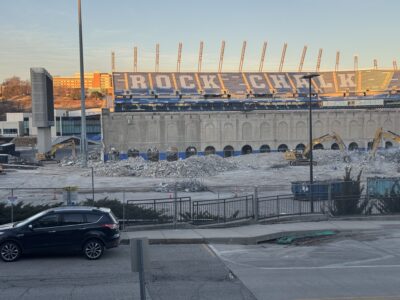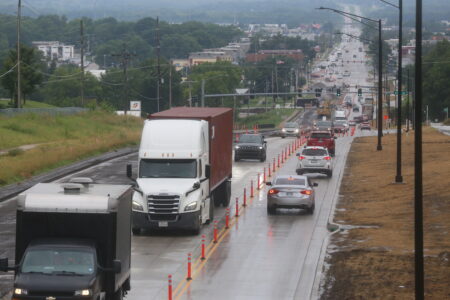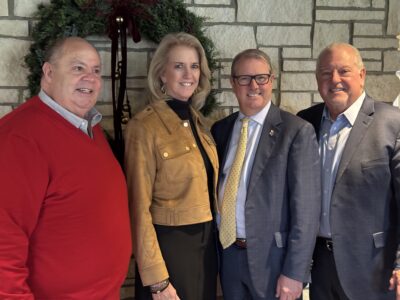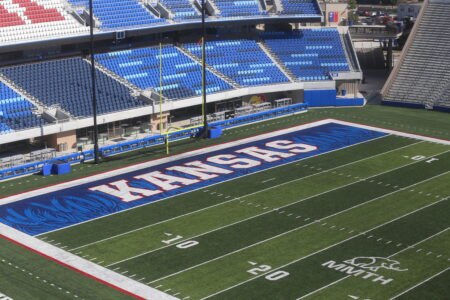
Lawrence residents on track to be hit with largest property tax increase in recent memory
I’m beginning to become confused about prosperity.
It seems like Lawrence is experiencing quite a bit of it. Yet, Lawrence residents soon may get a statement that causes them to wonder if it is true. Lawrence residents are on track to see their largest property tax increase in recent memory.
I tend to wince when people say that “growth doesn’t pay for itself” because I came from a community that has proved that decline definitely doesn’t pay well. But Lawrence leaders aren’t doing much this year to prove that growth pays its own way because we’ve certainly had growth. Here’s a look:
• Sales tax collections in 2016 grew by their largest percentage since 1998, and collections are in positive territory thus far in 2017.
• Lawrence home values are increasing significantly. Thus far in 2017, the average selling price of a home is up more than 7 percent from the same time period a year ago.
• Construction activity has been booming. In 2015 and 2016 the city issued building permits for about $450 million in new construction, the best two-year total in the city’s history.
• Our population also is growing. Since 2010, Douglas County has grown its population 7.7 percent, the highest population growth rate of any urban county in the state.
• To top it off, outsiders seem to be seeing it too. A North Carolina development company wants to build about 500,000 square feet of retail space in southern Lawrence.
In theory, all of those factors should increase the local tax base. A growing tax base should allow local governments to collect more in taxes without having to raise the tax rates on individuals or businesses. But that’s not the way it is shaping up this year.
Nothing is final yet, but the city, the county and the school district are all in the process of setting their 2017 mill levies, which will be used to fund their 2018 budgets. Those mill levies will determine how much you pay in property taxes this December.
If the city, the county and the school district follow the recommendations of their administrators and staff, the combined property tax rate will increase 5.41 mills. I’m sure there has been a larger local tax increase at some point, but it hasn’t been since 2012. To put the proposed increase in perspective, the combined mill levy increased by a total of 6.1 mills from 2012 to 2016. In other words, this one-year increase would be almost as much as the last four increases combined.
The Lawrence school district is set to contribute the largest amount to the increase — 2.4 mills — but it will do so with the blessing of local voters. The 2.4 mill levy increase was part of the deal when voters in May overwhelmingly approved an $87 million bond issue to improve school facilities.
The city of Lawrence and Douglas County aren’t seeking any such voter approval. The county is proposing a 1.76 mill increase and the city is proposing a 1.25 mill increase. The city has a variety of capital projects it wants to fund with the increase, but the one drawing the most attention is the beginning phases of a new police headquarters building. Voters in 2014 rejected a sales tax proposal to fund a police headquarters facility. The city is changing the plans of the building, but, importantly, it also is changing strategies. It doesn’t plan to ask voters for approval. They’ll just fund it through a property tax increase instead.
The county also has several items it wants to fund with additional tax revenue, but improvements to the community’s mental health system account for a lot of the increase. Improving the mental health system has been part of a larger discussion at the courthouse related to expanding the Douglas County Jail. Improved mental health services may reduce the number of people with mental illness who are in jail. The entire project could cost $30 million or more. It likely would require a vote of county taxpayers, but it appears the county is comfortable moving ahead with some of the mental health projects without a vote of the public.
In terms of what this means to your pocketbook, it varies. A 5.4 mill increase on a $200,000 home will amount to an extra $124 in taxes for the year. If you pay your taxes as part of your mortgage, your monthly payment probably will go up about $10.
For some of you, that may not be the only tax increase you experience. The state of Kansas is raising income taxes for the first time in awhile. A previous analysis by the Journal-World found that a couple who jointly earn $100,000 per year and have two kids will experience an income tax increase of $292 for the year. If they happen to own a $200,000 house, they would be paying an extra $416 in local property and state income taxes. A couple who jointly make $50,000 per year, have two kids and own a $125,000 home would see a $77 increase in property taxes and $91 in income taxes for 2017, although their income taxes would start to go down in 2018 as a child care tax credit starts to phase in.
It is not for me to say whether any of these proposed increases are burdensome. Everybody has to make their own judgments about that. I’m also not saying, at the moment, that what the city, the county and the school district are asking for in increased taxes is unreasonable. Everybody will have their own arguments to make on that, and certainly not everything is all roses in Lawrence and Douglas County. There are problems that likely will take money to address. (Although, affordable housing is presumed to be one of those problems, and this tax increase likely won’t make housing any more affordable.)
But I do think it is important that local taxpayers understand the context of these proposed tax increases. They are the largest in recent memory, and they are coming at a time when the community is experiencing quite a bit of prosperity. It raises a natural question: Where is the prosperity dividend?
We’ll be asking elected officials that in the coming days and weeks as they finalize their budgets.


